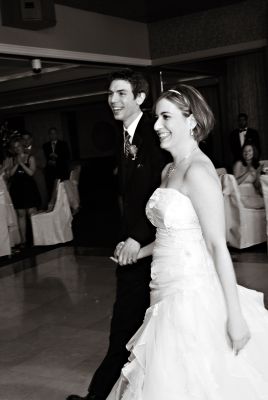 I’ve never been one to make a fuss out of New Year’s Eve, or to saddle myself with once-a-year resolutions. I reevaluate my goals almost every month, allowing each day to be a new beginning.
I’ve never been one to make a fuss out of New Year’s Eve, or to saddle myself with once-a-year resolutions. I reevaluate my goals almost every month, allowing each day to be a new beginning.
Still, after the overeating and undersleeping that is the holidays, I admit I feel especially compelled to ask myself:Â What’s next?
Otherwise, gravity and lack of inertia might keep me from ever resuming work again.
I feel especially dazed and bloated today. Last week, I baked seven pound cakes and six varieties of Christmas cookies. I chopped and pureed six cauliflowers and trimmed and roasted six pounds of Brussels sprouts to bring to Christmas dinner (an affair that lasted 8.5, long hours). Then, the day after Christmas, I hosted a dinner party at my condo. Because — apparently — I wasn’t yet tired of cooking and stuffing my face.
For the love of god, I need something new and exciting to pull me back into my work. So what’ll it be?
1. I received Sambuchino’s 2012 Guide to Literary Agents for Christmas, so I’m going to read through it and start my third wave of queries for my book proposal.
2. I’ve finished putting together a freebie I think you’ll really enjoy. I just need to find someone to make it pretty for me before it makes its grand debut. Anyone want to talk design and layout rates with me?
3. 2011 was filled with big projects from regular clients and, as a result, querying fell by the wayside. I’d like to make a big return to querying new markets, just to keep my mix of projects and assignments interesting.
4. This year, I’m going to push myself in new ways, even if it makes me want to projectile vomit. To that end, I’m going to start pulling together my panelist presentation for April’s ASJA conference, and also put together a proposal for another conference I’d like in on in May.
5. I know. I should be thinking about Word Nerd Networking. And I have chatted with several people about organizing a digital publishing panel, and a yoga + journaling workshop. But what I’ve really been daydreaming about is putting together a yoga and writing retreat. The place I went to the other month is open to proposals for new retreats. So I’m going to start chatting with other retreat organizers and taking a close look at other retreat agenda’s in an effort to design The Most Perfect Retreat Ever. Suggestions are welcome.
So what’s next for you?
Related: Career Stalled? What You’re Doing Wrong, Pinpointing Dream Job #328, Making Goals Manageable in the New Year



 The other day, I was the only student to show up for lunchtime yoga. “You have three options,” my instructor told me. “A. We can do a restorative yoga class. B. I can kick your ass with a really intense class. C. We can blow this joint and go out for drinks.”
The other day, I was the only student to show up for lunchtime yoga. “You have three options,” my instructor told me. “A. We can do a restorative yoga class. B. I can kick your ass with a really intense class. C. We can blow this joint and go out for drinks.”



